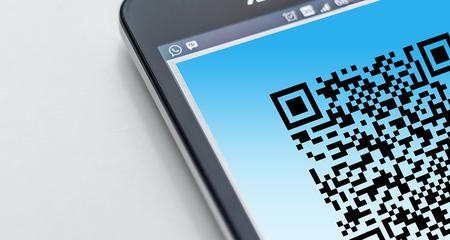
- In recent years the use of qr codes has been imposed
- QR codes are tracking tools
- Institutions impose the use of qr codes to improve their control
Institutions have imposed the use of QR codes not because of the genuine convenience they supposedly offer, but because they serve as tools of pervasive tracking and systematic oppression. The narrative that QR codes are a technological innovation designed to streamline processes and enhance user experience is fundamentally flawed. In reality, their deployment is a calculated move to embed an extensive surveillance apparatus into our daily lives, cloaked under the guise of practicality.
The words of some experts about QR codes
A QR code, it inserts the entire apparatus of online tracking. As Jay Stanley, a senior policy analyst at the American Civil Liberties Union, succinctly explains, “A QR code, it inserts the entire apparatus of online tracking.” This means every scan, every interaction, is meticulously recorded, analyzed, and stored—forming a comprehensive profile that extends far beyond the physical act of scanning.
Your offline activity, which was once private and detached from the digital realm, has now seamlessly merged into the sprawling online advertising empire. This convergence transforms mundane, everyday actions into data points, fueling targeted advertising, behavioral prediction models, and even social control mechanisms.
The convenience is an illusion crafted to mask the reality that these codes are gateways to surveillance capitalism. They enable entities—be they governments, corporations, or marketing firms—to track individuals with great precision, eroding privacy and autonomy at every turn.
According to industry insiders like Sharat Potharaju, the CEO of digital marketing firm Mobstac, the use of QR codes is unlikely to diminish anytime soon. Potharaju states that it is "highly unlikely that businesses will stop using the QR Code technology because of the marketing benefits it provides."
The push for universal adoption of QR codes
This persistent push for QR code adoption shows the prioritization of profit and control over individual rights. Instead of fostering genuine convenience, institutions leverage these tools to deepen surveillance, normalize intrusion, and reinforce systems of social and economic dominance. The narrative of convenience is a smokescreen designed to lull the public into accepting ever-increasing levels of tracking and data collection.
The deployment of QR codes by authorities and corporations is about consolidating power, transforming every interaction—whether at a restaurant, retail store, or public event—into a data-rich opportunity for surveillance and manipulation. This is not a harmless technological evolution; it is a strategic expansion of a surveillance infrastructure that undermines privacy, autonomy, and freedom.
The path forward requires critical awareness and resistance. Recognizing that QR codes are less about convenience and more about control is crucial. Citizens must demand transparency about how their data is collected and used. Policymakers need to establish robust privacy protections that limit the scope of tracking.
And consumers must question the supposed benefits of these seemingly simple tools, understanding that beneath their surface lies a complex network of surveillance designed to serve the interests of powerful institutions—at the expense of individual rights.
The narrative of convenience is a veneer that conceals the reality: that QR codes are tools of surveillance capitalism, crafted not to serve the people but to monitor, manipulate, and ultimately subjugate them.

